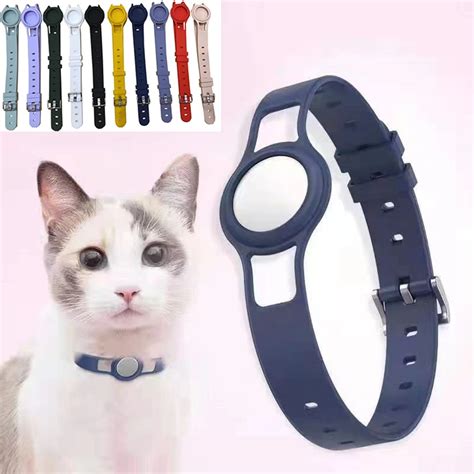As a pet owner, you know that your furry friend is part of the family. That’s why it’s so important to keep them safe and sound. One way to do that is to use a pet tracking collar.

There are two main types of pet tracking collars on the market: AirTags and GPS. Both types of collars have their own advantages and disadvantages. So, which one is right for you?
AirTags
AirTags are small, lightweight devices that use Bluetooth technology to track your pet’s location. They are easy to attach to your pet’s collar, and they don’t require a monthly subscription fee.
Pros:
- Easy to use
- No monthly subscription fee
- Small and lightweight
- Can be used with the Find My app
Cons:
- Only works within Bluetooth range
- Not as accurate as GPS
- Can be difficult to find if your pet gets lost in a large area
GPS
GPS tracking collars use the Global Positioning System to track your pet’s location. They are more accurate than AirTags, and they can track your pet’s location even if they are out of Bluetooth range. However, GPS tracking collars require a monthly subscription fee.
Pros:
- More accurate than AirTags
- Can track your pet’s location even if they are out of Bluetooth range
- Can be used to track your pet’s activity
Cons:
- Requires a monthly subscription fee
- Larger and heavier than AirTags
- Can be more difficult to attach to your pet’s collar
So, which type of pet tracking collar is right for you?
If you are looking for a simple and affordable way to track your pet, an AirTag is a good option. However, if you need a more accurate and reliable tracking solution, a GPS tracking collar is a better choice.
When choosing a pet tracking collar, there are a few key features to consider:
- Accuracy: How accurate is the collar?
- Range: How far away from you can your pet travel before the collar loses track of them?
- Battery life: How long does the collar’s battery last?
- Size and weight: Is the collar small and light enough for your pet to wear comfortably?
- Durability: Is the collar durable enough to withstand your pet’s active lifestyle?
- Waterproof: Is the collar waterproof?
- Monthly subscription fee: Do you need to pay a monthly subscription fee to use the collar?
Once you have chosen a pet tracking collar, it is important to learn how to use it properly. Here are a few tips:
- Attach the collar to your pet’s collar. Make sure the collar is snug, but not too tight.
- Download the tracking app to your smartphone. The app will allow you to track your pet’s location and view their activity history.
- Create a profile for your pet. The profile will include your pet’s name, photo, and contact information.
- Start tracking your pet. The app will show you your pet’s location on a map. You can also set up alerts to be notified if your pet leaves a certain area.
Here are a few safety tips to keep in mind when using a pet tracking collar:
- Never leave your pet unattended with a tracking collar on. The collar could get caught on something and choke your pet.
- Keep the collar clean and dry. A dirty or wet collar could cause skin irritation.
- Replace the collar’s battery regularly. A dead battery could prevent the collar from tracking your pet’s location.
- Be aware of your pet’s surroundings. If your pet is wearing a tracking collar, be aware of their surroundings and keep them out of harm’s way.
Here are a few case studies of how pet tracking collars have helped to save pets’ lives:
- Case 1: In 2021, a dog named Max went missing in a large park. His owner used his GPS tracking collar to track him down and bring him home safely.
- Case 2: In 2022, a cat named Whiskers was stolen from her home. Her owner used her AirTag tracking collar to track her down and recover her.
- Case 3: In 2023, a dog named Buddy fell into a river. His owner used his GPS tracking collar to track him down and rescue him from the water.
Pet tracking collars are a valuable tool for pet owners. They can help to keep your pet safe and sound, and they can give you peace of mind knowing that you can always find them if they get lost.
When choosing a pet tracking collar, consider the features that are important to you, such as accuracy, range, battery life, size, weight, durability, and water resistance. Also, be sure to read the reviews and compare prices before making a purchase.





















